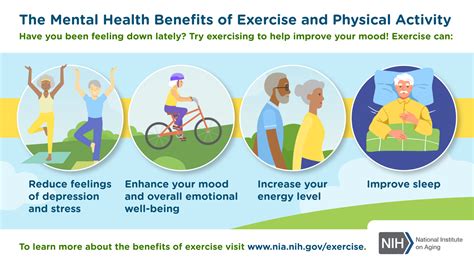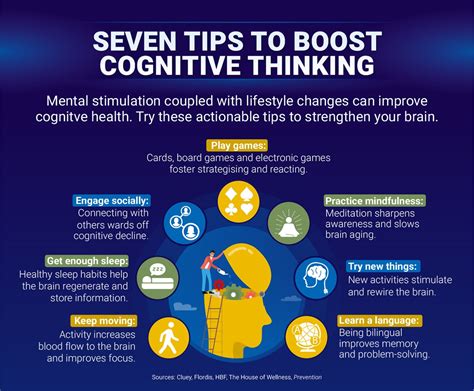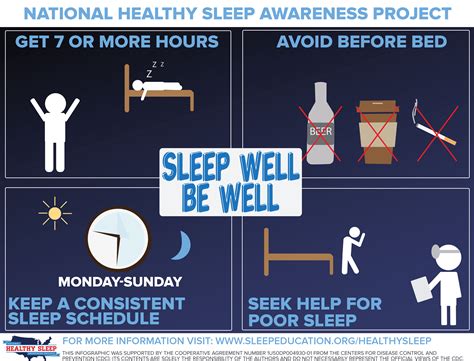In today's fast-paced society, where stress and anxiety have become commonplace, it is crucial to explore effective ways to safeguard our mental and emotional well-being. In this context, the significance of engaging in physical activity cannot be overstated. Studies have shown that regular exercise not only builds physical strength and endurance, but also plays a pivotal role in enhancing our mental health.
Engaging in physical exercise stimulates the release of endorphins, commonly known as the 'feel-good' hormones, which have a positive impact on mood and overall emotional state. Moreover, engaging in activities such as running, swimming, or cycling offers a sense of achievement and self-efficacy, boosting self-confidence and providing a much-needed break from the challenges of daily life.
Furthermore, physical exercise fosters the production of brain-derived neurotrophic factor (BDNF), a protein that promotes the growth of new neurons in the brain. This neural growth, combined with improved circulation and oxygenation, plays a crucial role in maintaining cognitive function, memory, and attention span. Recent research has also indicated that regular physical activity may protect against cognitive decline and reduce the risk of developing neurodegenerative disorders, such as dementia and Alzheimer's disease.
The Power of Physical Activity for Mental Well-being

Exploring the profound influence of engaging in regular physical activity on one's mental well-being reveals the exceptional potential it holds for fostering a positive state of mind, emotional balance, and overall psychological health. Emphasizing the significance of incorporating movement into daily routines goes beyond the conventional notion of mere exercise, shifting the focus towards harnessing the power it possesses in nourishing the mind and enhancing one's overall sense of well-being.
Boosting Mood and Reducing Stress
Maintaining a positive state of mind and effectively managing stress are essential aspects of overall well-being and happiness. When it comes to improving one's mood and alleviating stress, engaging in physical activity can play a significant role. Incorporating regular exercise into your routine has been shown to have a profound impact on mental health, helping to boost mood and reduce feelings of stress.
Enhancing Emotional Well-being:
Exercise has the power to uplift your spirit and promote a sense of well-being by stimulating the release of endorphins – the feel-good chemicals in the brain. These natural mood boosters can counteract feelings of anxiety and depression, leaving you with a more positive outlook on life. By investing time in physical activity, you can cultivate a stronger sense of emotional resilience and find greater overall happiness.
Alleviating Stress:
Stress is an inevitable part of life, but it's important to find healthy ways to manage it. Engaging in regular exercise acts as a powerful stress reliever, helping to reduce tension and clear the mind. Whether it's a brisk walk in nature, a vigorous workout session, or a peaceful yoga practice, physical activity provides an outlet to release pent-up stress and channel your energy in a positive direction.
Boosting Cognitive Function:
In addition to its positive effects on mood and stress, exercise has also been found to enhance cognitive function. Physical activity stimulates blood flow to the brain, delivering oxygen and nutrients that support optimal brain health. This can result in improved focus, concentration, and overall mental clarity, enabling you to better manage the challenges and demands of daily life.
Elevating Self-Esteem and Confidence:
Regular exercise can have a transformative effect on self-esteem and confidence levels. When you engage in physical activity and witness the progress and improvements in your own abilities, it can boost your self-confidence and provide you with a sense of achievement. Feeling good about yourself physically can spill over into other areas of life, contributing to a more positive self-image and increased self-worth.
Conclusion:
Incorporating exercise into your lifestyle can bring about numerous mental health benefits, such as an enhanced mood, reduced stress levels, improved cognitive function, and increased self-esteem. By prioritizing physical activity and making it a regular part of your routine, you can proactively support your overall mental well-being and enjoy a happier, more fulfilling life.
Enhancing Cognitive Function and Memory

The importance of physical activity goes beyond just improving mental well-being. Engaging in regular physical exercise can also have a positive impact on cognitive function and memory.
Exercise stimulates the brain, promoting the release of chemicals that aid in the growth of new brain cells. This process, known as neurogenesis, enhances cognitive abilities such as attention, concentration, and problem-solving. It also helps to improve memory formation and retention.
| Improved Focus and Concentration | Enhanced Problem-Solving Skills |
| Regular exercise increases blood flow to the brain, delivering oxygen and nutrients necessary for optimal cognitive function. This improved circulation contributes to enhanced focus and concentration, allowing individuals to stay engaged in tasks and improve overall productivity. | Engaging in physical exercise encourages the development of new neural connections in the brain. These connections enable individuals to think more creatively, solve problems efficiently, and adapt to new situations with greater ease. |
Furthermore, exercise has been shown to have a positive effect on memory. Physical activity increases the production of a protein called brain-derived neurotrophic factor (BDNF), which plays a crucial role in promoting the growth and survival of neurons. This, in turn, enhances memory formation and consolidation.
Exercise is also beneficial in preventing cognitive decline and reducing the risk of neurodegenerative diseases, such as Alzheimer's. By engaging in regular physical activity, individuals can protect and preserve cognitive abilities as they age.
Incorporating exercise into one's routine can be as simple as taking a daily walk, swimming, or participating in a favorite sport. The impact of regular physical activity on cognitive function and memory is a powerful reason to prioritize an active lifestyle.
Combating Anxiety and Depression
Managing and alleviating feelings of unease and sadness are important aspects of maintaining overall well-being. In this section, we explore how engaging in physical activity can serve as a powerful tool in combating anxiety and depression, promoting mental resilience and enhancing emotional stability.
Promoting Better Sleep and Restfulness

Enhancing the quality of sleep and promoting a state of restfulness are crucial components of maintaining optimal well-being and fostering a healthy mind. Adequate sleep is pivotal in rejuvenating the body, enhancing cognitive function, and improving overall emotional resilience. This section discusses the ways in which regular physical activity can positively impact sleep patterns, contributing to a more restful and rejuvenating night's sleep.
| Improved Sleep Quality | Regular physical exercise can aid in achieving a more profound and restorative sleep. Engaging in physical activity promotes better sleep quality, leading to increased time spent in deep sleep and reduced instances of sleep disturbances such as sleep apnea and insomnia. By participating in consistent exercise, individuals can experience a more restful sleep, allowing for improved cognitive function and emotional well-being upon waking. |
|---|---|
| Reduced Daytime Sleepiness | Engaging in regular exercise can also help reduce daytime sleepiness and combat feelings of fatigue. By promoting a healthier sleep pattern and increasing the duration of restful sleep, physical activity can minimize excessive daytime sleepiness, enhance alertness, and improve concentration levels throughout the day. This, in turn, contributes to overall mental productivity and emotional stability. |
| Stress Reduction and Relaxation | Regular physical exercise has been found to be an effective stress management tool, aiding in relaxation and reducing anxiety levels. Engaging in activities such as yoga, tai chi, or mindfulness-based exercises can promote feelings of calmness and tranquility, making it easier to unwind before bed. By incorporating these relaxation techniques into a regular exercise routine, individuals can create a conducive environment for better sleep quality and restfulness. |
| Regulated Circadian Rhythm | Exercise can help regulate the body's internal clock, known as the circadian rhythm. By establishing a consistent exercise routine, the body becomes accustomed to a regular pattern of activity and rest, optimizing the natural sleep-wake cycle. This synchronization of the circadian rhythm helps promote a smoother transition into sleep, enhancing the quality and efficiency of sleep periods. |
| Enhanced Mood and Emotional Well-being | Incorporating physical activity into daily life has been shown to have positive effects on mood and emotional well-being. Regular exercise releases endorphins, also known as "feel-good" hormones, which can help alleviate symptoms of depression, anxiety, and stress. By improving overall mental health, exercise plays a vital role in promoting a more relaxed state of mind, which can facilitate a deeper and more restful sleep. |
In conclusion, incorporating regular exercise into one's lifestyle can yield several benefits that contribute to better sleep quality and restfulness. By improving sleep patterns, reducing daytime sleepiness, promoting relaxation, regulating the circadian rhythm, and enhancing mood and emotional well-being, physical activity plays a vital role in fostering a state of optimal rest, rejuvenation, and overall mental well-being.
Building Resilience and Enhancing Self-confidence
In the realm of promoting mental well-being, engaging in physical activities goes beyond simply improving one's physical health. It encompasses a profound impact on mental resilience and self-esteem, contributing significantly to an individual's overall psychological state. Through the incorporation of regular exercise routines, individuals can cultivate resilience against life's challenges and boost their self-confidence.
Enhanced Psychological Resilience:
Regular physical exercise acts as a powerful catalyst in developing psychological resilience. Engaging in activities that challenge the body's limits provides ample opportunities for individuals to push beyond their perceived barriers, ultimately strengthening their mental endurance. By consistently confronting and overcoming physical challenges, individuals learn to adapt, persevere, and bounce back from adversity, thereby enhancing their resilience in the face of life's obstacles.
Increased Self-esteem:
Participating in exercise activities can also significantly improve an individual's self-esteem. While engaging in physical activity, the body releases endorphins, commonly known as "feel-good" hormones. These chemicals promote a sense of happiness and accomplishment, boosting self-confidence and overall self-worth. Additionally, exercise can lead to improved physical fitness and appearance, further enhancing self-image and reinforcing positive self-perception.
Stress Reduction:
Regular exercise plays a pivotal role in managing and reducing stress levels. Physical activity helps channelize built-up tension and release pent-up emotions, offering a healthy outlet for stress relief. Moreover, engaging in exercise prompts the body to produce hormones such as serotonin and dopamine, which are known to regulate mood and reduce feelings of anxiety or depression. This natural mood enhancement leads to improved mental well-being and overall resilience.
Building a Supportive Community:
Participating in group exercise activities or team sports can provide a sense of belonging and foster a supportive community. The shared experiences, camaraderie, and mutual encouragement gained from these activities can contribute to building resilience and enhancing self-esteem. The social interactions and connections forged during exercise not only provide emotional support but also create opportunities for personal growth and development through collective achievements.
In conclusion, the incorporation of exercise routines in daily life can go a long way in building resilience and improving self-esteem. Regular physical activity offers individuals the opportunity to develop mental strength, boost self-confidence, alleviate stress, and foster a supportive community. By embracing the diverse benefits of exercise, individuals can fortify their mental well-being and lead a more fulfilling life.
FAQ
How does exercise improve mental health?
Exercise has numerous positive effects on mental health. It helps to reduce symptoms of anxiety and depression by releasing endorphins, which are known as the "feel-good" hormones. Physical activity also increases the production of serotonin and dopamine, which are neurotransmitters that regulate mood and emotions. Additionally, exercise provides a distraction from negative thoughts and promotes better sleep patterns, which are essential for maintaining mental well-being.
What types of exercise are most effective for improving mental health?
Any form of physical activity can have a positive impact on mental health. However, aerobic exercises like running, swimming, or cycling are particularly effective in reducing symptoms of depression and anxiety. These exercises increase the heart rate and stimulate the release of endorphins. Additionally, activities such as yoga and tai chi, which combine physical movement with mindfulness and deep breathing, can be beneficial for calming the mind and reducing stress.
How often should I exercise to see mental health benefits?
The frequency of exercise required to experience mental health benefits varies from person to person. However, experts recommend engaging in moderate-intensity exercise for at least 30 minutes, five times a week. This can be achieved through activities such as brisk walking, dancing, or playing a sport. Remember, consistency is key, so it is best to establish a regular exercise routine and gradually increase the duration and intensity to maximize the positive effects on mental health.
Are there any additional benefits of exercise for mental health?
Apart from reducing symptoms of anxiety and depression, exercise has several other benefits for mental health. Regular physical activity can enhance cognitive function, improve memory and focus, and boost overall brain health. Exercise also helps to increase self-esteem and confidence by promoting a sense of accomplishment and improving body image. Moreover, being physically active provides opportunities for social interaction and can help reduce feelings of loneliness or isolation.



